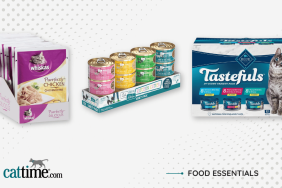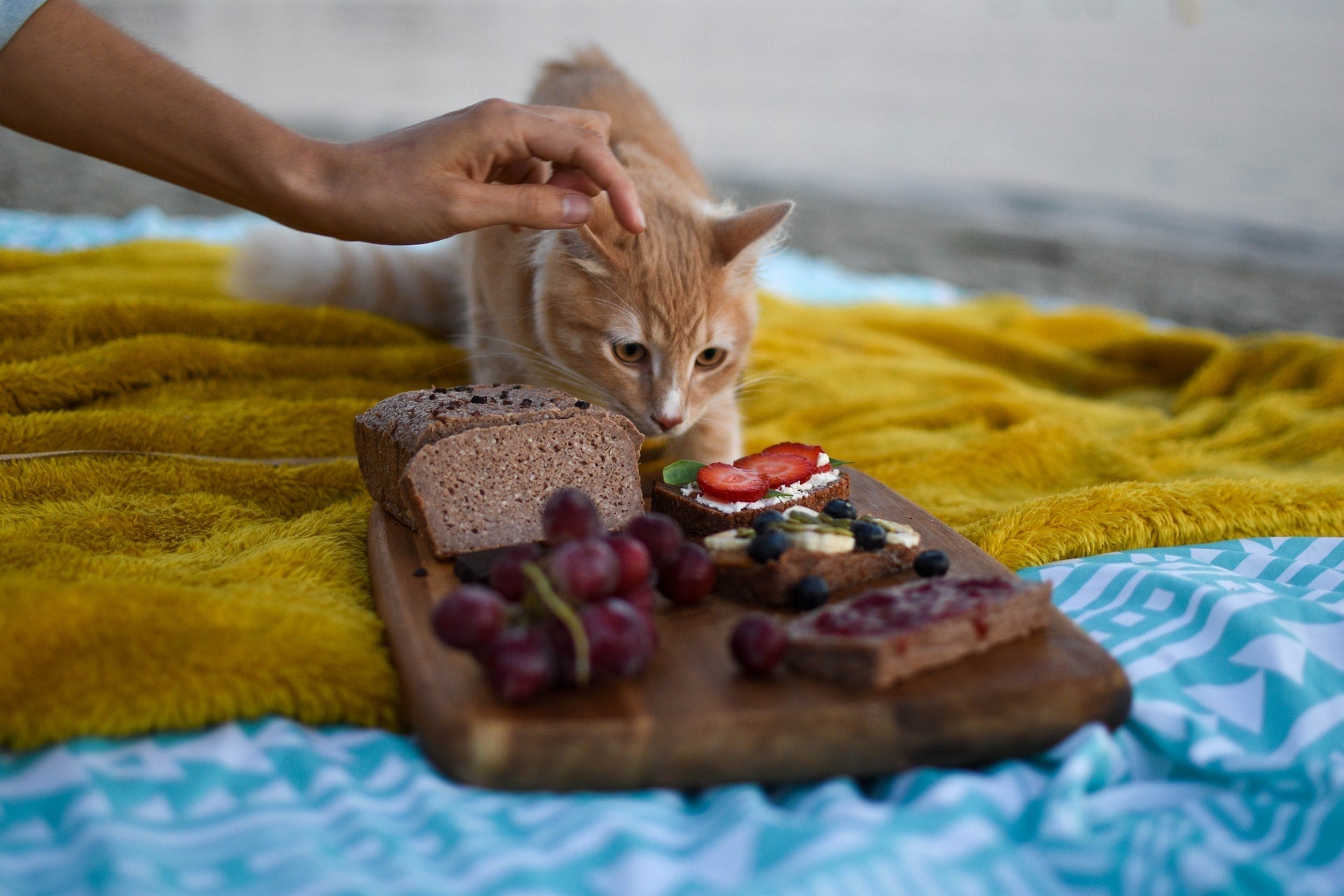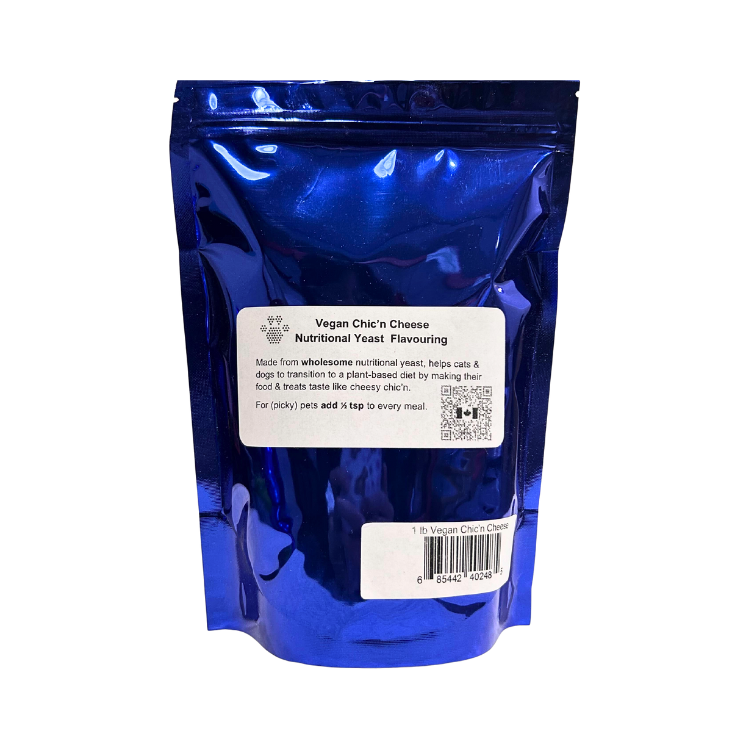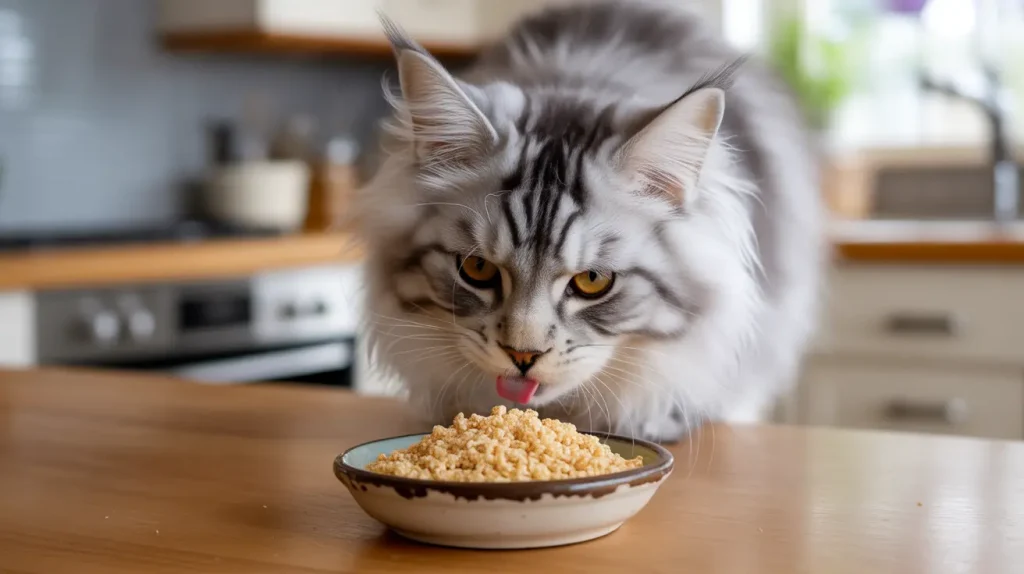Are you curious about adding nutritional yeast to your cat’s diet but unsure if it’s safe? You want the best for your furry friend, and making informed choices about what they eat is key.
Nutritional yeast is popular among pet owners for its health benefits, but can your cat really enjoy it without any risks? Keep reading to discover the truth about nutritional yeast and how it might affect your cat’s health. Understanding this will help you decide if it’s a good addition to your pet’s meals.
Don’t miss out on essential tips that could keep your cat happy and healthy!

Credit: cattime.com
Nutritional Yeast Basics
Nutritional yeast is a popular food ingredient. It has a cheesy and nutty flavor. Many people use it as a seasoning or a supplement.
This yeast is made from a single-celled fungus. It grows on sugar-rich mediums and is harvested, washed, and dried.
What Is Nutritional Yeast
Nutritional yeast is inactive yeast. It is different from baking or brewer’s yeast. It cannot be used to make bread rise.
It is rich in protein, vitamins, and minerals. Many people use it to add flavor and nutrients to their meals.
- It contains B-vitamins such as B12 and folate.
- It provides all nine essential amino acids.
- It is low in fat and free of sugar.
- It is often fortified with extra nutrients.
Common Uses In Human Diets
People use nutritional yeast in many ways. It can replace cheese flavor in vegan dishes. It also adds nutrients to meals.
| Use | Description |
| Sprinkling | Added on popcorn, salads, or pasta for flavor |
| Cooking | Mixed into soups, sauces, or dips |
| Supplement | Consumed for its vitamin and protein content |
| Vegan Cheese | Used as a base for cheese-like sauces |
Safety Of Nutritional Yeast For Cats
Nutritional yeast is a popular supplement for humans. Some pet owners wonder if it is safe for cats. This article discusses the safety of nutritional yeast for cats.
We will look at whether nutritional yeast is toxic to cats. Also, we will review recommended serving sizes for cats.
Is Nutritional Yeast Toxic To Cats
Nutritional yeast is not toxic to cats. It is made from a type of yeast called Saccharomyces cerevisiae. This yeast is safe and often used in foods.
Many cats can eat small amounts without harm. Nutritional yeast contains vitamins like B-complex and protein. These nutrients can support your cat’s health.
- Not poisonous for cats
- Contains beneficial vitamins
- Safe in small amounts
- Check for allergies before feeding
Recommended Serving Sizes
Use nutritional yeast in small amounts for cats. Too much can cause stomach upset. Start with a tiny pinch to see how your cat reacts.
Mix it into your cat’s food a few times a week. Avoid daily feeding to prevent nutrient overload. Always consult your vet before adding supplements.
- Start with 1/8 teaspoon per serving
- Feed 2-3 times per week
- Watch for any digestive issues
- Consult your vet for advice
Health Benefits For Cats
Nutritional yeast is a popular supplement for humans. Pet owners often ask if it is safe and helpful for cats. This natural product contains vitamins and minerals that may support your cat’s health.
This article explores the health benefits of nutritional yeast for cats. It covers how it can boost the immune system, improve skin and coat health, and aid digestion.
Boosting Immune System
Nutritional yeast contains beta-glucans, which help strengthen the immune system. A strong immune system helps cats fight infections and stay healthy.
- Beta-glucans support white blood cell activity
- Rich in antioxidants that reduce cell damage
- Contains B vitamins that improve energy and immunity
Supporting Skin And Coat Health
Vitamins in nutritional yeast help keep your cat’s skin healthy. The nutrients also support a shiny, soft coat. These benefits come mainly from B vitamins and zinc.
| Vitamin or Mineral | Benefit |
| Vitamin B2 (Riboflavin) | Reduces dryness and irritation |
| Vitamin B7 (Biotin) | Promotes healthy fur growth |
| Zinc | Supports skin repair and elasticity |
Improving Digestion
Nutritional yeast contains fiber and enzymes that aid digestion. These help break down food and keep the gut healthy. A healthy digestive system means fewer stomach problems.
Here are some digestive benefits for cats:
- Fiber promotes regular bowel movements
- Enzymes improve nutrient absorption
- Supports growth of good gut bacteria

Credit: www.pethonesty.com
Potential Risks And Side Effects
Nutritional yeast is often considered safe for humans. But cats have different dietary needs and sensitivities. Giving cats nutritional yeast can cause some risks and side effects.
It is important to know what problems might happen. This helps keep your cat safe and healthy.
Allergic Reactions
Some cats can have allergic reactions to nutritional yeast. Allergies happen when the immune system reacts to a substance. Symptoms can range from mild to severe.
Watch for signs like itching, swelling, or skin redness. Sneezing and coughing may also occur. If your cat shows these signs, stop giving nutritional yeast and see a vet.
- Itchy or red skin
- Swelling around the face or paws
- Sneezing or coughing
- Hives or bumps on the skin
Digestive Issues
Nutritional yeast may upset your cat’s stomach. Some cats cannot digest it well. This can lead to digestive problems.
Common digestive issues include vomiting, diarrhea, or gas. These symptoms mean your cat’s tummy is not happy with the yeast.
- Vomiting
- Diarrhea
- Gas or bloating
- Loss of appetite
Interactions With Medications
Nutritional yeast might interact with some medicines your cat takes. It contains compounds that can affect drug action. This can change how well the medicine works.
Tell your vet before giving nutritional yeast if your cat is on medication. This helps avoid harmful effects or reduced medicine benefits.
- Check with your vet first
- Watch for changes in medicine effectiveness
- Report any new symptoms immediately
How To Introduce Nutritional Yeast
Nutritional yeast can be a good supplement for cats in small amounts. It has vitamins and protein that may support their health.
Start slowly to see how your cat reacts. Watch for any changes in behavior or health.
Choosing The Right Form
Nutritional yeast comes in flakes, powder, and tablets. Choose a form that is easy to mix with your cat’s food.
Powder and flakes work well sprinkled on wet food. Tablets need to be crushed or given as treats.
- Flakes: Easy to sprinkle on meals
- Powder: Mixes well with wet food
- Tablets: Must be crushed or given carefully
Safe Feeding Tips
Give nutritional yeast in small amounts first. Start with a pinch once or twice a week.
Do not use large amounts. Too much can upset your cat’s stomach or cause other problems.
- Begin with a small pinch
- Feed only a few times per week
- Mix with regular food for easy eating
- Watch your cat’s reaction closely
Signs Of Adverse Reactions
Look for signs that your cat may not tolerate nutritional yeast. Stop feeding if you see any symptoms.
- Vomiting or diarrhea
- Loss of appetite
- Itching or skin irritation
- Lethargy or unusual behavior
If you notice these signs, contact your vet for advice. Safety is important when feeding new foods.
Alternatives To Nutritional Yeast
Nutritional yeast is popular for adding flavor and nutrients to cat food. Some cats may need other options. It is important to find safe and healthy alternatives.
This guide covers other supplements and natural foods you can use instead of nutritional yeast for your cat.
Other Supplements For Cats
There are several supplements that provide vitamins and minerals like nutritional yeast. These support your cat’s health and well-being.
- Taurine supplements help with heart and eye health.
- Fish oil provides omega-3 fatty acids for skin and coat.
- Vitamin B complex supports energy and metabolism.
- Probiotics improve digestion and gut health.
Natural Food Sources
Natural foods can also provide nutrients similar to nutritional yeast. They add variety and extra health benefits to your cat’s diet.
| Food | Key Nutrient | Benefits |
| Cooked chicken | Protein | Muscle health and energy |
| Egg yolk | Biotin | Healthy skin and coat |
| Salmon | Omega-3 fatty acids | Brain and heart support |
| Spinach | Iron and vitamins | Blood health and antioxidants |

Credit: vegansupply.ca
Frequently Asked Questions
Can Cats Safely Eat Nutritional Yeast?
Yes, cats can safely eat small amounts of nutritional yeast. It provides vitamins and protein but should be given as a treat, not a staple.
What Are The Benefits Of Nutritional Yeast For Cats?
Nutritional yeast offers B vitamins, protein, and antioxidants. It may support skin, coat, and immune health in cats when fed appropriately.
How Much Nutritional Yeast Can I Give My Cat?
Limit nutritional yeast to a pinch or 1/4 teaspoon occasionally. Too much can cause digestive upset or nutritional imbalance in cats.
Are There Any Risks Feeding Cats Nutritional Yeast?
Feeding excessive nutritional yeast may cause upset stomach or allergic reactions. Always introduce it slowly and monitor for any adverse effects.
Conclusion
Cats can enjoy nutritional yeast in small amounts. It offers some benefits, like added vitamins and a savory flavor. Always introduce new foods slowly to monitor reactions. Consult your vet before making dietary changes. Nutritional yeast isn’t a substitute for a balanced diet.
Keep your feline’s meals diverse and nutritious. Remember, moderation is key. Too much can upset their stomach. A little sprinkle now and then can be a tasty treat. Your cat’s health and happiness are what matters most. Keep them safe and well-fed.
